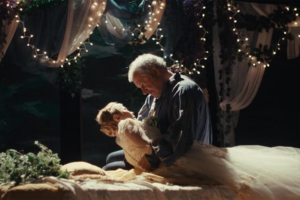Reviewed by GREG KING
Director: Paul Haggis
Stars: Russell Crowe, Elizabeth Banks, Liam Neeson, Brian Dennehy, Helen Carey, Olivia Wilde.
A moderately gripping yarn about a man who goes to extraordinary lengths to break his wife out of prison, The Next Three Days requires a healthy suspension of disbelief from the audience to succeed.
Mild mannered college professor John Brennan (Russell Crowe) finds his life turned upside down when his lawyer wife Lara (Elizabeth Banks) is arrested for the murder of her colleague. Most of the evidence against her is circumstantial and John believes in her innocence. But, over the course of three years, all appeals to overturn her conviction fail, and he grows desperate realising that Lara may never be released.
Prepared to do whatever it takes, he goes to extraordinary lengths to break her out of prison. He gains advice from Pennington (Liam Neeson), an ex-con who has written a book about escaping from prison. He is told that he needs to become a ruthless person, the type who could leave his kid behind at a gas station. He also does a crash course in some illegal activities, like breaking into a car. There’s also some nasty business with a drug dealer that has John briefly turn into an unlikely action hero cum vigilante. It’s a transformation that is not always convincing, and with anyone but Crowe in the role it would probably not work.
But John is forced to suddenly change strategies when he learns that Lara is due to be transferred to a maximum security prison within the next three days. Cue some dramatic action. The escape itself relies heavily on both luck and at times the ineptitude of the police.
Anyone who thinks that the plot sounds familiar should know that The Next Three Days is writer/director Paul Haggis’ recent bloated and heavy handed remake of the recent gritty French thriller Anything For Her (Pour Elle). Haggis has largely remained faithful to Fred Cavaye’s script, but has embellished some of the peripheral characters, beefed up the police investigation, and added more tension to the desperate escape.
John has plastered the spare room of his house with detailed maps and photographs. Haggis uses some deft slight of hand in setting out the details of the elaborate prison escape, and it seems as though the pursuing police are not the only ones misled.
This is Haggis’s third outing as a director, after the Oscar winning Crash and the anti-war drama In The Valley Of Elah, and his perfunctory direction normally lacks subtlety. But here he does manage to pump up the adrenaline for the extended climactic chase, and he imbues these scenes with a modicum of tension and energy.
Taking a break from his usual sullen anti-heroes, Crowe is solid, and the film hinges on his performance as the tenacious everyman hero moved to anger by circumstances. Banks makes the most of a couple of emotional scenes, and she brings a nice ambiguity to her enigmatic performance that causes a little niggle of doubt with the audience – could she in fact be guilty and is John blinded by his tunnel vision? Brian Dennehy and Helen Carey are given little to do in their roles as John’s sympathetic parents, who are unable to do much to help their son’s predicament. And Olivia Wilde is also given little to do in her role.
Haggis and French cinematographer Stephane Fontaine (Un Prophet, The Beat My Heart Skipped, etc) make the most of the Pittsburgh locations. Danny Elfman’s score is less bombastic than usual, and offers a fine counterpoint to the action. While Haggis’ film is an okay thriller, its 120-minute running time lacks the sparse and lean feel of the taut original.
★★★




